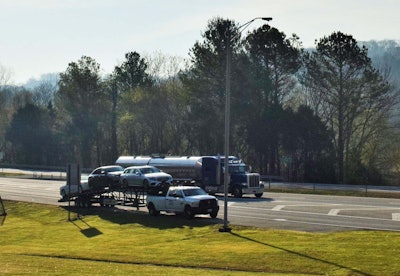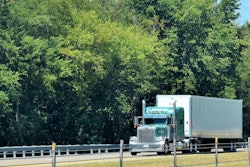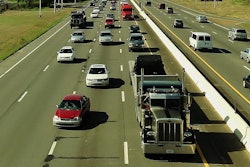
At first glance, one might think, “Great. It’s about time someone did something!”
I’m talking about Texas Congressman Brian Babin’s bill to change the hours rule, adding the three-hour off-duty pause to the 14-hour clock. In some views, this effectively extends the maximum length of the workday to 17 hours. The bill, which mirrors a petition to the FMCSA to institute such a pause put forward by the Owner-Operator Independent Drivers Association, has been greeted with mixed reviews and interesting responses. After years of cries to fix the hours of service, a surprising number of owner-operators and drivers say that this proposal just isn’t what’s needed.
Also, response to the proposal seems to be based on whether a person is paid by the mile or hour versus an owner operator paid on a percentage of revenue or other by-the-haul-type contract.
Does this bill add flexibility or just move the finish line? When I first read about this, I wondered: Has anyone done the math to evaluate this proposal?
Many years ago I was talking with an Illinois trooper about log books and the hours rule. “A person must be frigging Einstein to do the math,” he said. “It’s just too complicated!”
He’s charged with quickly assessing if truckers are operating within the rule, and he has trouble with it. It’s not a responsibility I’d want, given the variables involved. Is it any wonder so many of us cry for more simplicity and common sense?
How would this new three-hour pause effect the 8/2-hour split? I’ve utilized the 8/2 split for many years, but I still encounter many drivers who don’t know about it or care to use it.
If a change is enacted and the intended results are less than favorable productivity- or safety-wise, what then? Not likely the rule will be thrown out. History teaches us that it takes five to ten years to bring about big changes, if they happen even that fast.
I will speculate that with the rapid advancement of new information technologies, we could experience faster adjustments and more specialized hours of service that are customized for the segments that are now exempt or seeking exemption, such as ag haulers, high-risk carriers and fuel transporters, to name a few.
I have more questions than answers on this subject. Many of my questions are about the cumbersome process to change this or any other rule, and therein could lie a problem. Just like a single move in a chess match can dramatically change the outcome, a single change in the hours regulations might affect safety or productivity.
It’s been about 15 years since the basic 11/14/10 rules went into effect. I remember how much more work I could complete with the added hour of drive time we got from that rule. People regularly pontificate about how much better trucking was with the old 10/8 rules and more sleeper splits. I’d challenge these memories, reminding people that we still got tired, and that the working environment for trucking was very different.
Just last week, talking with two trucking friends, we romanticized about the old rules. Like most who’ve been around for 20-40 years or more, we bragged about being Kings of Deceptiveness when it came to our log books. We did the work, we made the paper look legal, and no one said a word if nothing went wrong and no one got hurt. The company made money, and the bosses got their bonuses. Most everyone was complicit.
Does anyone really believe that was good or that this behavior should return to our businesses?
Isn’t it important to understand this history to avoid repeating our mistakes?
Not only have the hours of service changed, but I would remind my fellow truckers that the “rules of engagement,” so to speak, changed themselves, with tighter audits and more and larger lawsuits being brought. Increasingly, at ever smaller and smaller carriers, compliance and safety personnel are charged with making sure we don’t bankrupt the company with multimillion-dollar settlements.
I’ve learned that the risks that I face as an owner-operator every day are great. And what I observe is that too many people are coerced to accept avoidable risk, and for what?
Whether we favor the current hours rule or not, it is still personal responsibility that remains the ultimate consideration. It’s on us to operate safely, within the scope of the law. We owe that much to our families and communities.










